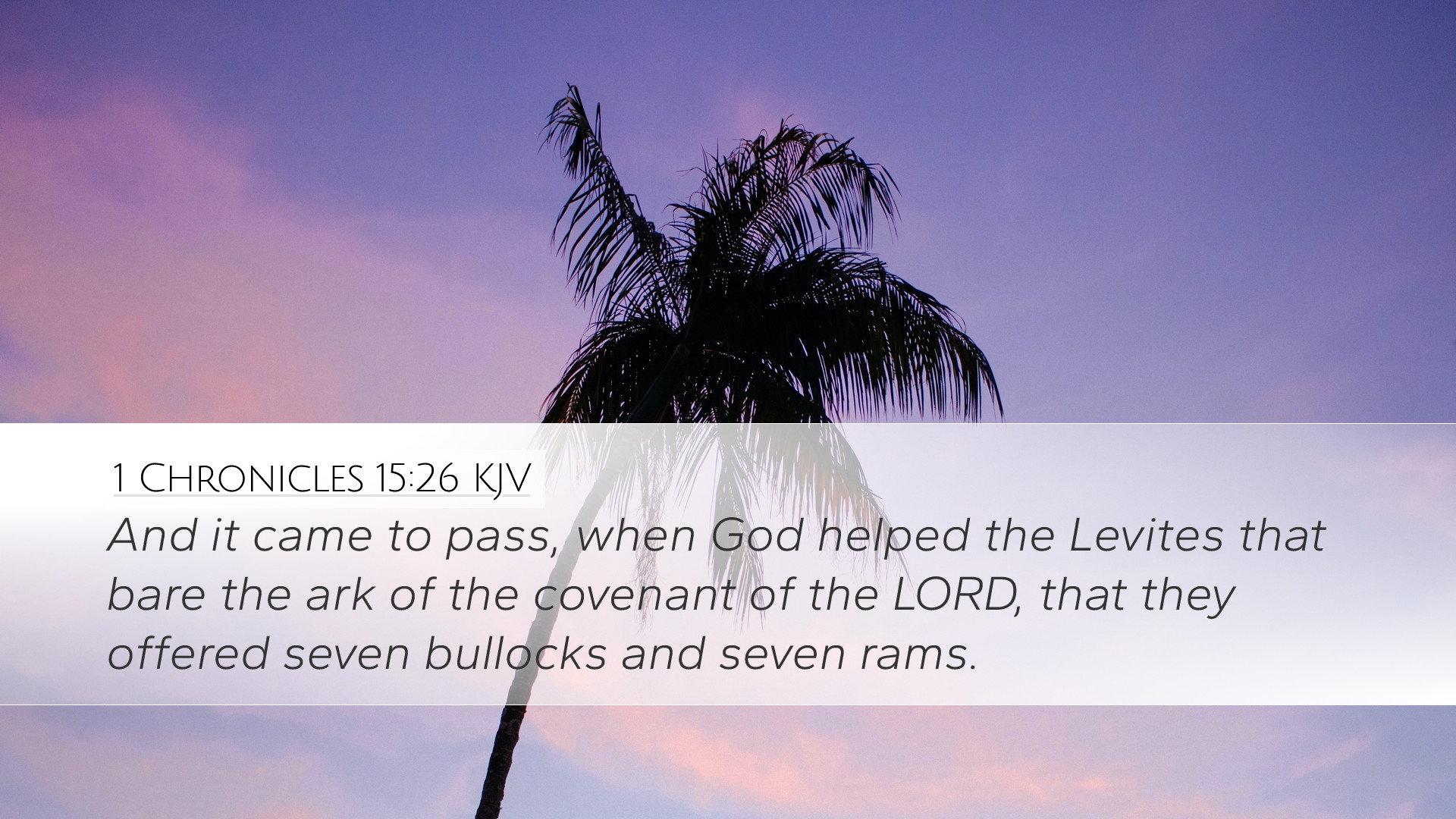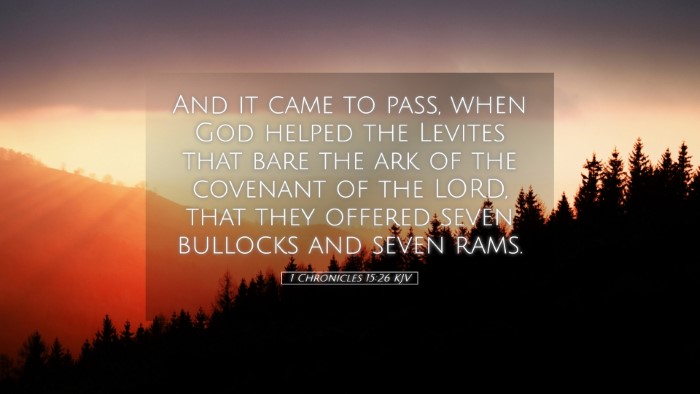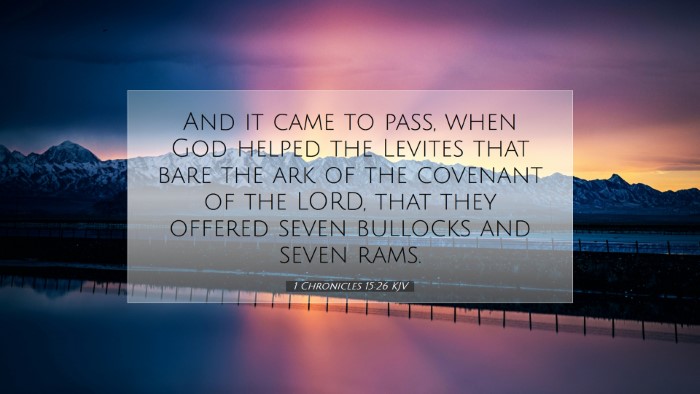Commentary on 1 Chronicles 15:26
Verse Context: 1 Chronicles 15:26 states, "And it came to pass, when God helped the Levites that bare the ark of the covenant of the Lord, that they offered seven bullocks and seven rams." This verse is situated within the narrative of King David's efforts to properly bring the Ark of the Covenant to Jerusalem, highlighting the involvement of the Levites and God's assistance in their sacred duties.
Introduction
This verse emphasizes a significant moment of divine assistance in the context of worship and service in Israel. The Levites are depicted not only as bearers of sacred artifacts but as participants in the worship process marked by offerings and gratitude. The historical and theological implications of this passage resonate deeply with themes of obedience, divine favor, and proper worship, as discussed in the works of renowned biblical commentators.
Insights from Commentators
Matthew Henry's Commentary
Matthew Henry emphasizes the transition from a mere ritualistic approach to one that acknowledges God's direct intervention. He notes that the Levites receiving God's help indicates His grace and support in their holy tasks. Henry suggests that the mention of offering sacrifices—seven bullocks and seven rams—points to the completion of a covenantal relationship, wherein the number seven symbolizes perfection and fulfillment.
- Divine Assistance: Henry illustrates that God's help was essential for the success of the Levites; they could not fulfill their role without divine endorsement.
- Significance of Sacrifice: The offerings demonstrate gratitude for this help, symbolizing both atonement and celebration of divine favor.
Albert Barnes' Notes
Albert Barnes expands on the importance of the Ark’s return in the context of national identity and worship. He comments on how the Levites were chosen specifically for this sacred duty, drawing attention to the consecrated nature of their work. Barnes also underlines the fact that sacrifices were not only a means of thanksgiving but also a recognition of God’s holiness and the Levites' role as mediators.
- Levites' Role: They are presented as critical to the spiritual life of Israel, reflecting the priestly lineage and their responsibilities before God.
- Corporate Worship: The communal nature of the celebration signifies the larger community’s acknowledgment of God's mighty hand in their history.
Adam Clarke's Commentary
Adam Clarke offers a detailed exploration of the sacrificial practices related to the Ark's journey. He comments on the choice of animals for the sacrifices, noting their significance within the Mosaic Law. Clarke highlights that such offerings served as a ritual cleansing and reaffirmation of covenantal loyalty.
- Symbolism of the Sacrifices: Clarke draws connections between the chosen animals and atonement, linking them back to the themes found in Levitical laws.
- God's Favor: He articulates that the notion of "God helping" reflects a fundamental truth of faith—that divine assistance is necessary for fulfilling the tasks He sets before His people.
Theological Implications
This verse and its commentary bring forth significant theological themes pertinent to the understanding of God’s relationship with His people:
- Grace and Help: The phrase "God helped the Levites" reinforces the concept of grace in carrying out tasks that are inherently beyond human capability.
- Worship and Sacrifice: The act of offering sacrifices is presented as an essential aspect of worship that acknowledges both human dependence on God and the holiness of God.
- Covenant Fulfillment: The context signifies that fulfilling one's sacred duties often requires an acknowledgment of the covenant established by God, manifesting in both action and offering.
Practical Applications
For pastors, theologians, and students of the Bible, the principles in 1 Chronicles 15:26 extend into contemporary faith practice. Here are several applications drawn from the insights of the commentators:
- Dependence on God: Recognizing that any ministry work requires divine help and support, fostering an attitude of prayer and reliance on God is crucial.
- The Importance of Worship: Proper worship encompasses not just personal piety but the corporate acknowledgment of God’s faithfulness, calling for communal expressions of gratitude.
- Understanding Covenantal Responsibilities: Reflecting on the idea of being set apart (like the Levites), believers are called to active participation in God’s work and adherence to His covenant.
Conclusion
1 Chronicles 15:26 encapsulates a pivotal moment in the history of Israel, marked by divine intervention, communal worship, and obedience. The insights from Matthew Henry, Albert Barnes, and Adam Clarke encourage deeper reflection on the themes of grace, sacrificial worship, and the calls to maintain covenantal fidelity. Ultimately, this verse serves as a reminder of both God’s faithfulness and the proper response of His people in thankfulness and dedication.


